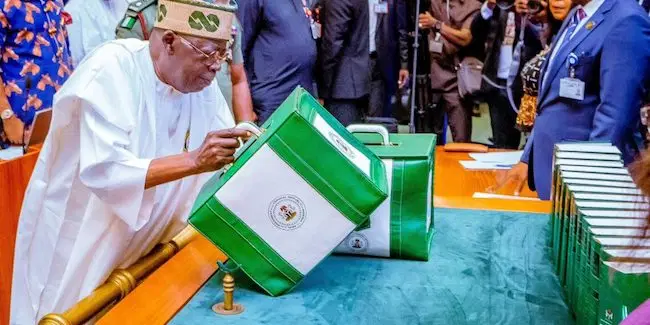Washington, D.C., USA — The International Monetary Fund (IMF) has called on the Federal Government of Nigeria to revise its 2025 budget of N54.99 trillion in response to lower-than-expected global oil prices.
This recommendation was detailed in the IMF’s Article IV Consultation Report on Nigeria, released yesterday in Washington, D.C.
The IMF projects Nigeria’s economy to grow by 3.4 percent in 2025, driven by increased oil production and a decline in inflation. However, it stressed that the 2025 budget must be adjusted downward to reflect current oil market realities.
The Fund commended the Central Bank of Nigeria (CBN) for its reforms, including exchange rate liberalization, which have helped stabilize the naira and attracted capital inflows. It also praised the CBN’s tight monetary policy stance, which it advised should continue until inflation is firmly under control.
Further, the IMF acknowledged efforts to strengthen the banking sector through recapitalization and welcomed initiatives to improve financial inclusion and capital market development. It emphasized the need for robust risk-based supervision in mortgage, consumer lending, fintech, and crypto sectors.
Economic Growth and Challenges
The IMF noted that while Nigeria’s economic growth has been steady, per capita growth remains low and inflation high. The benefits of growth have yet to reach all Nigerians, with food insecurity and poverty rising. Agriculture continues to struggle due to security issues and declining productivity.
The report highlighted that real GDP growth is expected to be supported by a new domestic refinery, higher oil output, and a strong services sector. However, medium-term growth is projected to hover around 3.5 percent amid global uncertainties.
Risks and Policy Recommendations
The IMF warned of increased downside risks, including a further drop in oil prices, rising financing costs, and deteriorating security, all of which could negatively impact growth, fiscal stability, and food security.
The Fund urged Nigeria to adopt a neutral fiscal stance that safeguards macroeconomic stability while prioritizing growth-enhancing investments. It stressed the importance of accelerating social safety nets to protect vulnerable populations amid rising poverty.
The IMF also recommended broadening Nigeria’s revenue base beyond oil by advancing tax reforms, including modernizing value-added and corporate income taxes, though it acknowledged these reforms will take time to yield results.
Government Response
Finance Minister and Coordinating Minister of the Economy, Mr. Wale Edun, responded to the IMF report, affirming the government’s commitment to proactively address the identified risks. According to a statement by Mr. Mohammed Manga, Director of Information and Public Relations, the Minister emphasized that the 2025 budget implementation focuses on safeguarding reform gains and maintaining economic stability.
Edun noted, “The government continues to monitor developments in the international oil market and global trade environment and is taking responsive measures to mitigate potential risks while maintaining momentum toward inclusive growth.”
By Taiwo Olatinwo | July 3, 2025
Discover more from DnewsInfo
Subscribe to get the latest posts sent to your email.





